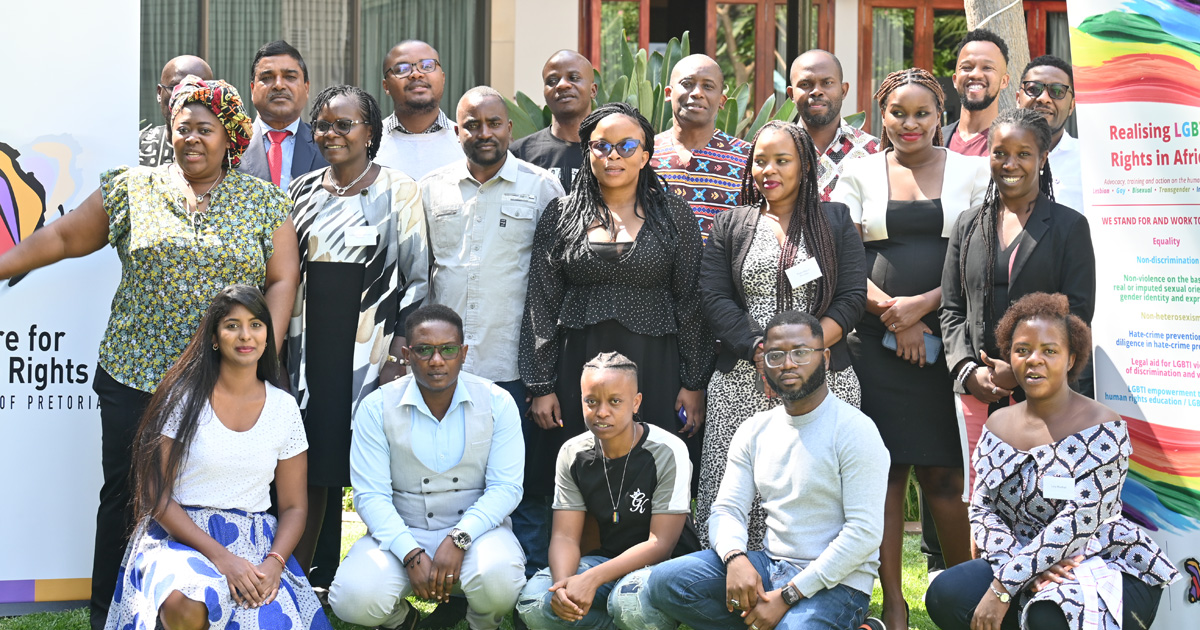On 24 November 2023, the Centre held a training workshop for officials from National Human Rights Institutions (NHRIs) focusing on the implementation of the Resolutions 275 on Protection against Violence and other Human Rights Violations against Persons on the basis of their real or imputed Sexual Orientation or Gender Identity (2014) and Resolution 552 on Promotion and Protection of the Rights of Intersex Persons in Africa (2023). The training falls within the broader work of the Centre to advance sexual and reproductive rights in Africa, including those of sexual and gender minorities. The objectives of the training were to increase the understanding of the contents and significance of Resolutions 275 and 552, to strengthen the capacity of NHRIs in the implementation of the 2 Resolutions, and to enhance the ability of NHRIs to protect and promote the rights of sexual and gender minorities in Africa.
The training was conducted in a hybrid format drawing NHRI officials from Botswana, Ghana, Kenya, Liberia, Malawi, Mauritius, Zambia and Zimbabwe. The training started with a detailed analysis of Resolution 275 and thereafter discussed the role of NHRIs in implementing the Resolution. The training progressed with an elaboration of sex characteristics and lived experiences of intersex persons. Thereafter participants were taken through the contents of Resolution 552 and the role that NHRIs can play in the implementation the Resolution. To enhance their understanding of the different sessions of the training, participants were provided with a Compendium on NHRIs in Africa and advocacy resources developed by the Centre on Resolutions to 275 and 552.
Participants highlighted the challenges that they face as NHRI officials in promoting the rights of sexual and gender minorities generally and how these challenges affect the ability and prospects of their respective NHRIs to implement Resolutions 275 and 552. Among the challenges identified were lack of internal awareness of sexual and gender minority rights, lack of awareness of the two Resolutions and generally the prevailing hostile social and legal environment on sexual and gender minority rights in Africa. On an optimistic note, the participants committed to foster internal understanding of the Resolutions within their NRHIs, include the implementation of Resolution 275 and 552 in their human rights promotion strategies and generally to ensure sexual and gender minority rights are included in their programming.
The training was financially supported by the Swedish International Development Cooperation Agency (SIDA).
For more information contact:

Tel: +27 (0) 12 420 4397
landilani.banda@up.ac.za

Tel: +27 (0) 12 420 3151
ch.vanderlinde@up.ac.za


